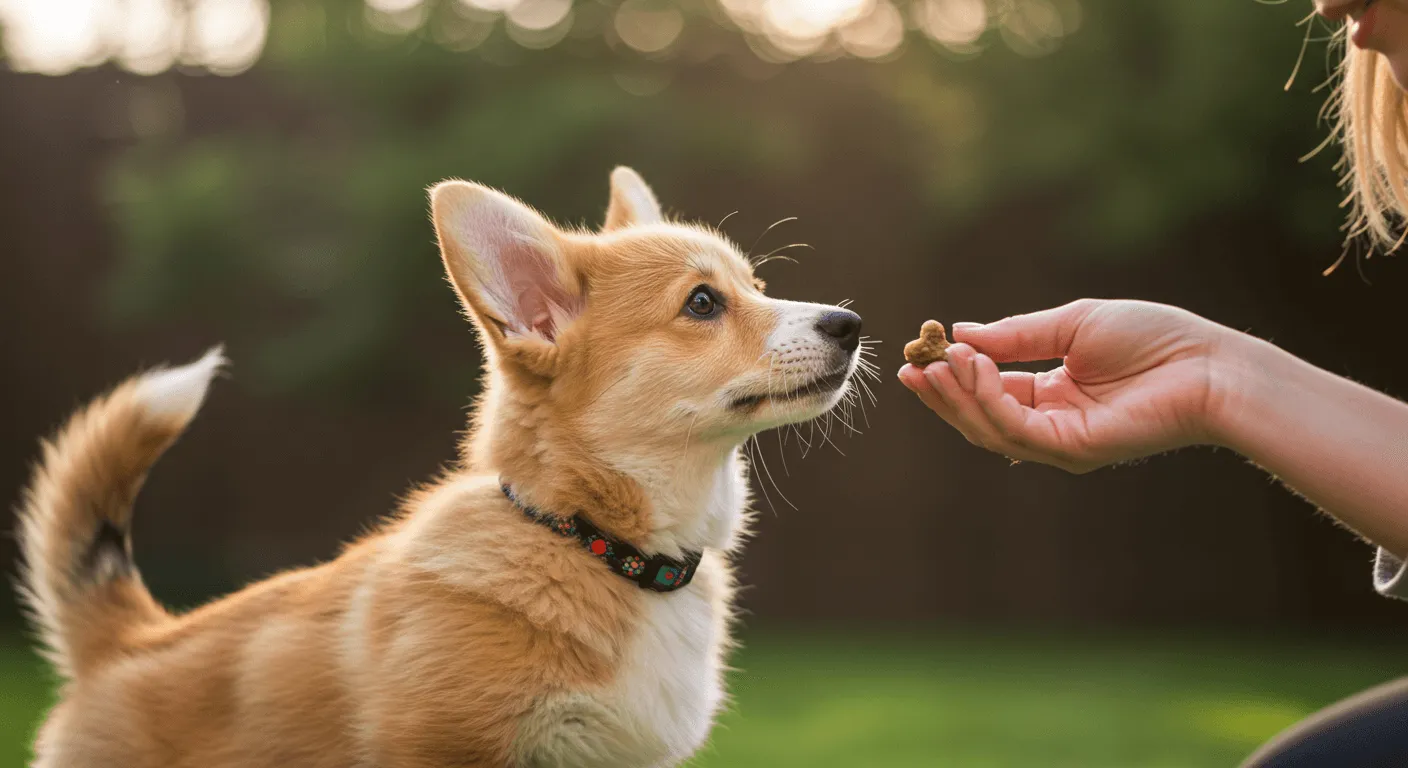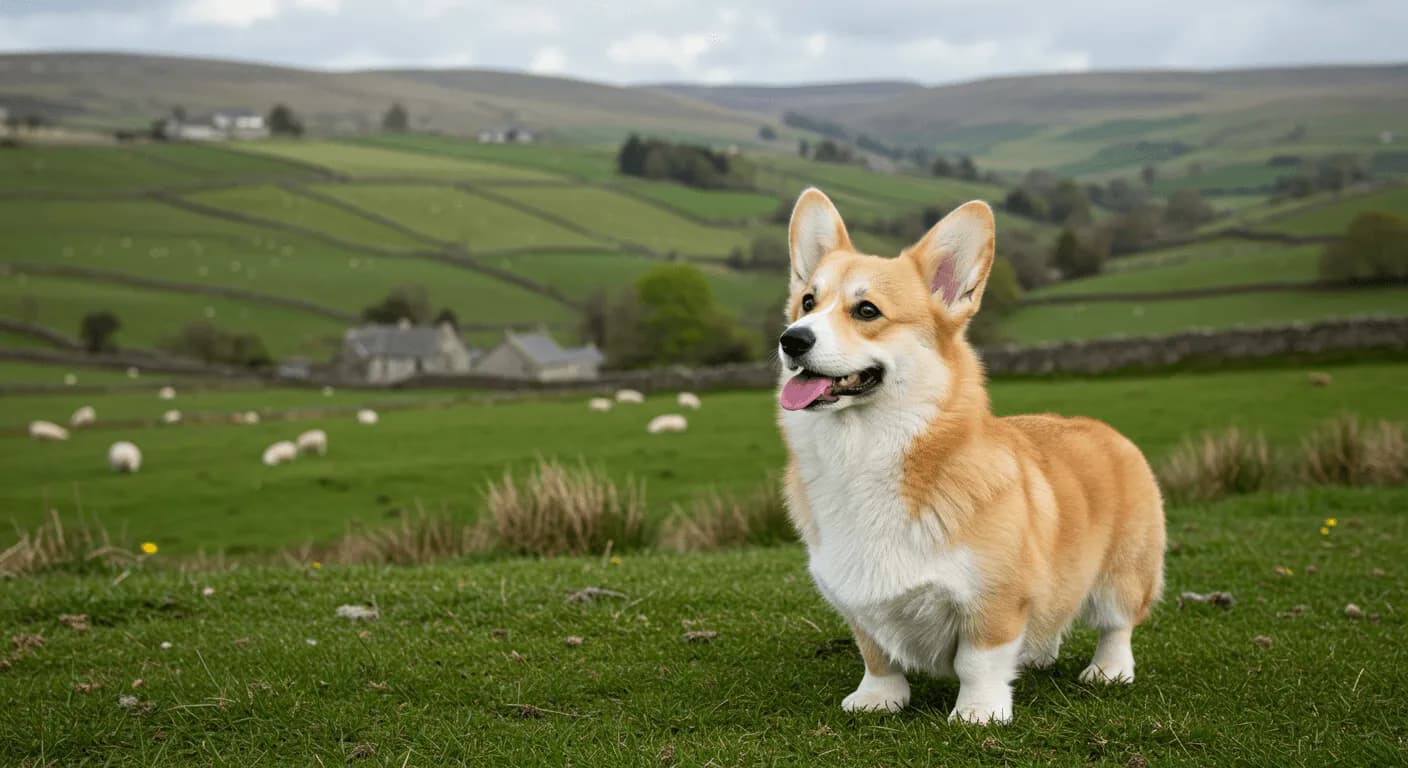Pembroke Welsh Corgis are one of the most recognizable and beloved dog breeds in the world. Known for their short legs, perky ears, and spirited personalities, these small herding dogs pack a big presence in a compact body. But while their appearance may often steal the show, it’s their intelligence and trainability that make them truly delightful companions—when trained correctly. If you’re wondering how to train a Pembroke Welsh Corgi or looking for a comprehensive Pembroke Welsh Corgi training guide, you've come to the right place.
Training a Corgi requires consistency, patience, and a good understanding of their breed-specific quirks. Though highly intelligent and eager to please, Pembroke Welsh Corgis can also be strong-willed, independent thinkers. Let’s dive into everything you need to know—from when to start training, to what treats work best, and how to handle the occasional stubborn streak.
When to Start Training
Just like many intelligent working breeds, Pembroke Welsh Corgis benefit greatly from early training and socialization. Ideally, you should begin training your Corgi as early as 8 weeks old, right after bringing your puppy home. At this age, their brains are like sponges—soaking up new experiences and behaviors.
Puppy vs. Adult Training
- Puppies: Begin with light socialization, potty training, and gentle basic commands such as "Sit" and "Come". Early introduction to different sounds, textures, and environments can prevent fear-based behaviors later in life.
- Adult dogs: Though it may take longer, older Corgis can absolutely be trained. Use positive reinforcement and patience to overcome potential bad habits or ingrained behaviors.
Keyword: Pembroke Welsh Corgi training age to start

Trainability Assessment
Wondering "Is Pembroke Welsh Corgi easy to train?" You're not alone. Fortunately, the answer is usually "Yes"—with the right approach.
Pembroke Corgis are incredibly intelligent, ranking high on canine intelligence tests. They were bred for herding, which means they're quick learners and thrive when given a job to do. However, because of that same intelligence, they may try to outthink their owners—a bit too smart for their own good!
Temperament Traits That Influence Training
- Eager to please: They respond well to praise and rewards.
- Stubborn at times: They can decide that their way is better.
- Energetic and alert: They need mental and physical stimulation to stay balanced.
Compared to other breeds like the Labrador Retriever (more eager and gentle) or the Border Collie (more focused and driven), the Pembroke Welsh Corgi falls somewhere in between—smart, capable, but occasionally headstrong.
Basic Training Commands
Every well-trained dog should have a solid grasp of foundational commands. For Pembroke Welsh Corgis, these commands are essential for safety and help manage their often excitable nature. Here are five key commands every Corgi should know:
- Sit – Teaching your dog to sit is a great way to calm them and reinforce focus.
- Stay – Helps manage your dog’s impulses, especially around guests or other animals.
- Come – Crucial for off-leash safety and recall.
- Heel – Keeps walks orderly and controlled.
- Leave It – Prevents your Corgi from grabbing things they shouldn’t.
Using Positive Reinforcement
Corgis thrive when they know they’ve pleased their owner. Use methods such as:
- Verbal praise (“Good dog!”)
- High-value treats
- Clicker training
- Favorite toys
Never use harsh punishments. Instead, redirect unwanted behaviors and reward appropriate ones. Positive association builds trust and lasting good habits.
Troubleshooting: When Your Dog Won't Listen
It can be frustrating when your Corgi stops responding to commands. You may find yourself asking, "Why won't my Pembroke Welsh Corgi listen to commands?"
Common Reasons for Ignoring Commands
- Lack of motivation: The reward isn't valuable enough.
- Distractions: Something more exciting is happening nearby.
- Inconsistency: Mixed signals from different family members.
- Boredom: Corgis need mental stimulation; repetitive drills can turn them off.
Solutions
- Step up the value of the reward—try chicken, cheese, or dehydrated liver.
- Train in a low-distraction environment and slowly build up.
- Stick to a routine and ensure all family members use the same cues.
- Incorporate fun into training, vary environments, and mix up the types of rewards.

Best Treats for Training Pembroke Welsh Corgis
High-value treats can make or break a training session—especially with a food-motivated breed like the Corgi. So what are the best treats for training Pembroke Welsh Corgis?
Recommended Treat Options
- Small bits of cooked chicken
- Freeze-dried liver pieces
- Soft commercial training treats (like Zuke’s or Wellness)
- String cheese in tiny shreds
Tips for Using Treats Wisely
- Use small portions—pea-sized at most—to avoid overfeeding.
- Mix high-value and regular kibble to keep excitement high.
- Fade out treats gradually once behavior is solid.
And don’t forget—treats aren’t the only motivators. Praise, petting, or a favorite tug toy can be just as effective once your dog understands what you’re asking.
Training Schedule
Creating a consistent Pembroke Welsh Corgi training schedule can streamline learning and reduce behavioral issues. Think of training not as a one-time event, but as a daily habit that you and your dog build together.
Sample Daily Training Routine
- Morning: 5–10 minutes of obedience practice (Sit, Stay, Come)
- Afternoon: A short mental game or nose work activity
- Evening: 5–10 minutes practicing walk manners and leash control
Weekly Goals
- Introduce one new concept or behavior
- Visit one new location for socialization
- One structured playdate or dog park visit (if your dog is vaccinated and properly socialized)

Duration Guidelines
- Puppies: 5–10 minutes, 2–3 times daily
- Adults: 10–15 minutes, 1–2 times daily
Short, frequent sessions are more effective than one long block. Always end on a positive note to keep your dog engaged and motivated.
Advanced Training and Socialization
Once your Corgi has nailed the basics, it’s time to advance to more complex training concepts. This is especially important for avoiding behavioral problems as your dog matures.
House Training
Corgis are quick learners but can be a bit stubborn. Make sure to:
- Take your puppy out every 2-3 hours
- Praise heavily when they go outdoors
- Stick to a feeding schedule to regulate bathroom times
Leash Manners
Because they have a strong herding instinct, Corgis tend to pull on the leash or dart after moving things. To curb this:
- Use a front-clip harness to discourage pulling
- Stop walking when they pull; resume only once they calm
- Practice directional changes and “Watch me” cues
Socialization Tips
- Expose your Corgi to a variety of people, sounds, and other dogs as early as possible.
- Supervise all early interactions, especially with small children or large dogs.
- Reward calm behavior around new stimuli.
Fun Activities for Mental Stimulation
Pembroke Corgis are clever and easily bored. Try the following to keep their minds sharp:
- Puzzle toys and treat-dispensing balls
- Scent games (like "Find the Treat")
- Agility courses (even homemade backyard versions)
- Basic trick training like “Roll Over,” “Spin,” or “High Five”
When to Seek Professional Help
If you’re struggling with behavior issues such as aggression, intense anxiety, or extreme stubbornness, consulting a professional dog trainer—specifically one who uses positive reinforcement techniques—could make a massive difference. A group obedience class is a great support tool for this highly social breed.
- Begin training early—at around 8 weeks of age.
- Use high-value rewards and plenty of praise.
- Keep sessions short, fun, and consistent every day.
- Use socialization to prevent fear and aggression later.
- Advance training gradually as your dog matures.
- Clicker training helps reinforce behaviors quickly
- Interactive toys fight boredom and promote learning
- Calm, consistent tone avoids confusion and builds trust
Conclusion
Training a Pembroke Welsh Corgi can be an incredibly rewarding journey, especially when approached with the right mindset and techniques. These intelligent, energetic dogs have a strong desire to please, but their independent streak means that consistency and patience are key. By starting early, reinforcing desired behaviors, socializing thoroughly, and offering mental as well as physical stimulation, you’ll be setting your Corgi up for a lifetime of good behavior and companionship.
Remember, every dog learns at their own pace. Celebrate small victories, stay positive even when progress feels slow, and always make training a fun and bonding experience. Whether you’re working on basic commands, mastering off-leash recall, or tackling advanced agility, your Pembroke Welsh Corgi has the potential to amaze you.
Have a favorite training tip or story about your own Corgi? Share your experiences in the comments below—we’d love to hear how your training journey is going!




